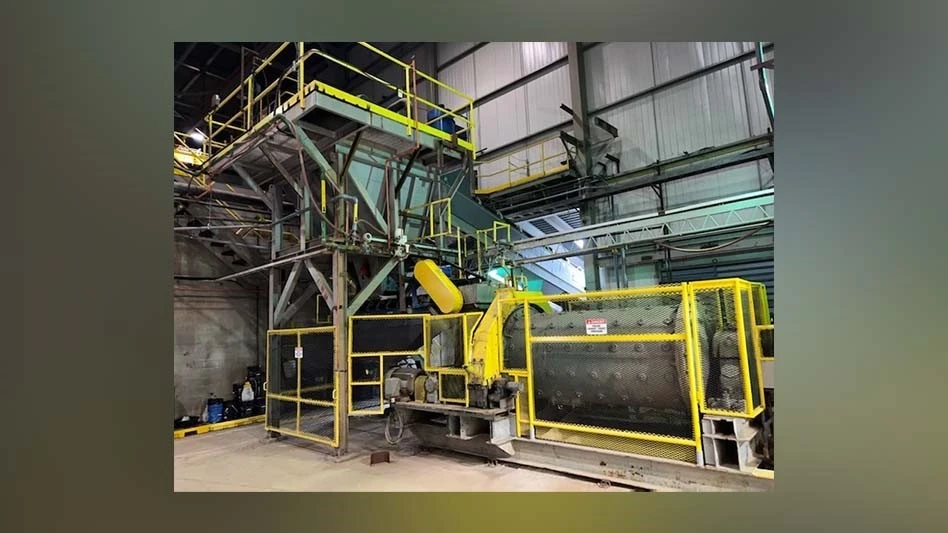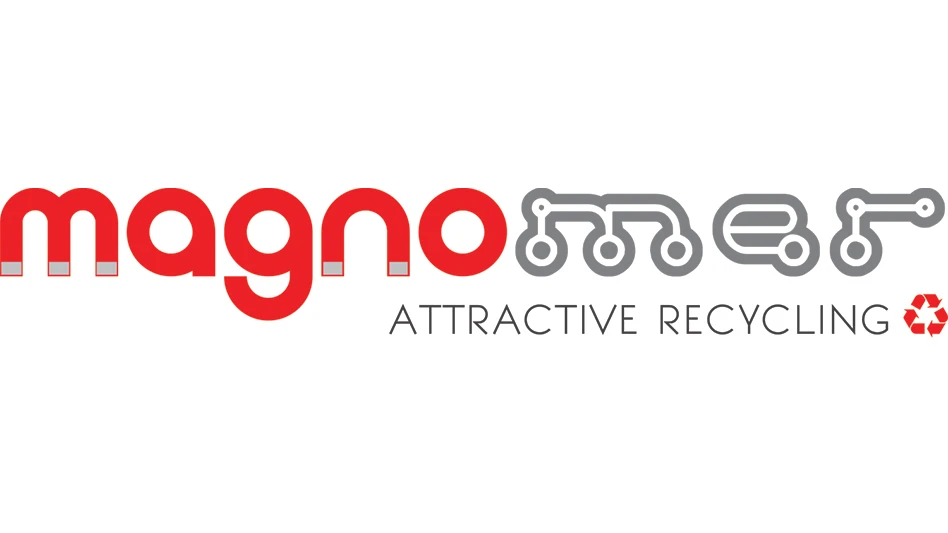
Image courtesy Electra Battery Material Corp.
Electra Battery Materials Corp., Toronto, is commissioning its black mass recycling demonstration plant at its battery materials park, located north of Toronto. The move follows the successful installation of material feed handling and lime delivery systems, two circuits in Electra's hydrometallurgical process designed to recycle end-of-life lithium-ion battery materials.
"Automakers are looking for a closed-loop supply chain for their batteries and Electra's recycling process presents a compelling solution to move to a circular model for recycling end-of-life batteries and battery manufacturing scrap," says Trent Mell, CEO of Electra Battery Materials. "Consistent with our strategy, integrating battery materials recycling to our cobalt sulfate production activities at our refinery will not only serve as an important differentiator but will allow us to generate incremental cash flow while strengthening our relationships with various stakeholders that make up the North American EV supply chain."
Pending completion of the demonstration plant and a review of project economics, Mell adds that the demonstration plant could pave the way toward the buildout of a black mass processing facility with 5,000 metric tons of annual processing capacity within the company's battery materials park in Ontario using existing infrastructure, personnel and a lab facility. Additional capacity would be added through the construction of modules as the market for recycled battery material expands.
Electra says it is retrofitting its existing cobalt sulfate refinery in Temiskaming Shores, Ontario. The goal is to accommodate its proprietary hydrometallurgical process designed to treat black mass, an intermediary material generated from the recycling of end-of-life electric vehicles and other lithium-ion batteries.
Under the parameters of the black mass demonstration, Electra plans to process up to 75 metric tons of material in a batch mode. Using its lab-tested process, Electra says it anticipates the recovery of high-value elements found in lithium-ion batteries, including nickel, cobalt, lithium, manganese, copper and graphite.
Electra also anticipates the full commissioning of all equipment and circuits of the black mass recycling demonstration in the fall of 2022 with the full commissioning of the cobalt sulfate refinery expected in the spring of 2023. The company says it will provide regular updates on the status of its demonstration plant and commissioning efforts.
Electra completed process development and engineering on recycling black mass material for the black mass demonstration plant. Electra previously sourced black mass samples from suppliers in North America, Europe and Asia, studied the feed characteristics and developed a hydrometallurgical process route to recover contained lithium, nickel, cobalt, copper and graphite. The test work was done at the facilities of SGS Labs in Lakefield, Ontario, and engineering was done using the combined resources of Electra technical personnel, supported by process design engineers of Hatch Associates and mechanical and electrical engineering support by Bestech.
Electra says its proprietary hydrometallurgical process has a low carbon footprint and produces stable nonacid-generating tailings, reducing environmental impacts while meeting or exceeding water discharge effluent criteria by federal and provincial regulations.
RELATED: Electra announces offtake agreement for recycled battery materials
Electra completed a benchmarking study indicating the carbon intensity of the cradle-to-gate battery-grade nickel sulfate produced from the recycled black mass using its hydrometallurgical process in a low-carbon electricity grid is lower than other feed options. This includes Class 1 nickel metal, nickel mixed hydroxide precipitate or ferronickel.
Additionally, the carbon intensity of nickel sulfate produced from recycled black mass at Electra's refinery is less than 50 percent of the carbon intensity of nickel sulfate produced from mixed hydroxide precipitate when relying on nonrenewables like coal-powered electricity, the company says. The refinery's primary power source is hydroelectric from Ontario Power Generation, resulting in nearly zero greenhouse gas emissions.
RELATED: Electra Battery Materials stays on cobalt recycling track
Latest from Recycling Today
- Haber raises $44M to expand to North America
- Canada Plastics Pact releases 2023-24 Impact Report
- Reconomy brands receive platinum ratings from EcoVadis
- Sortera Technologies ‘owning and operating’ aluminum sorting solutions
- IDTechEx sees electric-powered construction equipment growth
- Global steel output recedes in November
- Fitch Ratings sees reasons for steel optimism in 2025
- P+PB adds new board members





